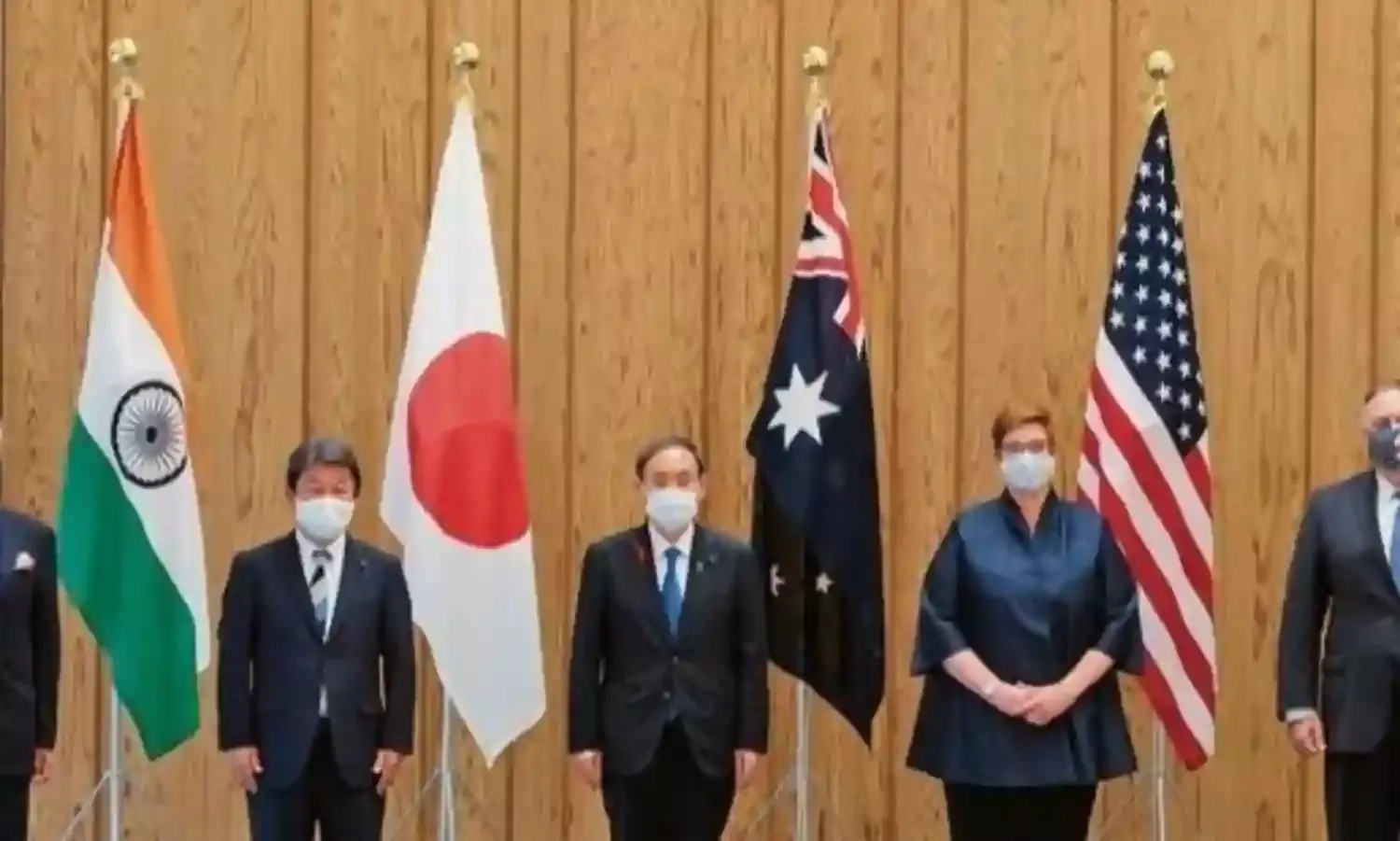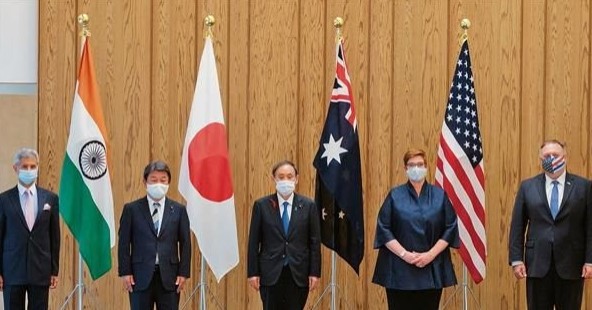West Asia Quad Counterproductive for India
India, UAE, Israel, US

THE part-virtual and part-person meeting of the foreign ministers of four countries – the United States, Israel, India and United Arab Emirates – on October 18 saw the emergence of a new grouping in West Asia. It is significant that the meeting took place when the Indian foreign minister, S Jaishankar, was visiting Israel to hold talks with the Naftali Bennett government.
According to the US readout of the meeting, the talks concerned trade, climate change, energy and maritime security. With this grouping, which is being termed as Quad 2 for West Asia, the United States has made another move against China and given the composition of the group against Iran too.
This foray by the Modi government into the West Asia region is significant for two reasons.
First, after the Quad being formalised for the Indo-Pacific region, which is seen explicitly as a response to China’s growing influence, the United States has taken the lead to constitute this four-party group for West Asia and brought in India. This shows the deepening strategic and political alliance between India and the US. The Modi government is getting more and more entangled in the US designs.
After the precipitate withdrawal from Afghanistan, the US and its Western allies have been groping for ways to recalibrate their strategy in West Asia. That the United States finds India a willing partner in the strategic exploration shows how deeply India has become involved in the Biden administration’s anti-China maneuvers. The US Secretary of State, Antony Blinken, must have discussed threadbare this new diplomatic move during his visit to India in September and the other consultations he held subsequently with Jaishankar.
The second aspect is that the Israel-India axis in support of the US designs in West Asia has solidified through this grouping. Under Prime Minister Modi, India has gone ahead in deepening the strategic alliance with Israel which had, from the beginning, a close security and military cooperation as its bedrock.
Israel has emerged as one of the biggest suppliers of defence and security equipment to India. The ideological affinity between Hindutva and Jewish extremism has been a cementing factor.
The United Arab Emirates, which is a close ally of the US in the region along with Saudi Arabia, established diplomatic relations with Israel last year and is already involved in intelligence and security cooperation with Israel.
For India, to become part of such a grouping constitutes a radical departure from its long-pursued foreign policy. The group, if it gets institutionalised, will be as much against Iran as China since Israel considers Iran to be its mortal enemy.
This will harm India’s long standing relationship with Iran, which has been steadily eroding over the years especially after the Modi government went along with the illegal sanctions imposed by President Trump consequent to his unilateral withdrawal from the nuclear agreement with Iran.
In this complex and volatile situation in West Asia, any joint endeavor with Israel for intervention in the region is going to prove counterproductive for India.
The “maritime security” talked about in the meeting will focus on the control of the sea lanes and, in particular, the Bab-el-Mandeb strait which connects the Arabian Sea and the Gulf of Aden to Red Sea and the Suez Canal. Like the Malacca straits, which falls under the purview of the Quad for the Indo-Pacific region, the Bab-el-Mandeb strait is a potential chokepoint for Chinese shipping and naval movements.
With the Biden administration desperately trying to cobble up a coherent global strategy against China, does India want to become a junior partner in this venture? The Quad, Aukus, the abortive four-country group announced on Central Asia (another Quad) before the collapse in Afghanistan (comprising the US, Pakistan, Afghanistan and Uzbekistan) – all show the United States scrambling to put in place arrangements to contain and isolate China. Something, given the present realities of China’s all-sided rise – economic, technological and military – appears to be a losing game.
Does it serve India’s interests to become a junior and ineffectual partner in this game?
Playing such a role will only alienate various other major powers with whom India has had close and friendly relations, particularly Iran and Russia. Joining the latest US move in West Asia shows that the subordination of India’s foreign policy to Washington is proceeding apace.
Prakash Karat is a member of the CPI-M Politburo.




